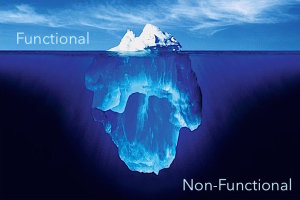
Any project’s requirements need to be well thought out, balanced and clearly understood by all involved, but perhaps of most importance is that they are not dropped or compromised halfway through the project. The difference is that non-functional requirements describe how the system works, while functional requirements describe what the system should do.
The functional requirement is describing the behavior of the system as it relates to the system’s functionality. The non-functional requirement elaborates a performance characteristic of the system.
Functional Requirements:
Most requirements definition focuses mainly on functional requirements, which are based upon the expected functioning of the product or system to be created.
Some of the functional requirements include:
- Business Rules.
- Transaction corrections, adjustments and cancellations.
- Administrative functions.
- Authentication.
Nonfunctional Requirements
Nonfunctional requirements refer to a whole slew of attributes including performance levels, security, and the various “ilities,” such as usability, reliability, and availability.
Some typical non-functional requirements are:
- Performance.
- Scalability.
- Capacity.
- Availability.
- Reliability.
Refences:
http://reqtest.com/requirements-blog/functional-vs-non-functional-requirements/
http://stackoverflow.com/questions/16475979/what-is-functional-and-non-functional-requirement
Image from: http://www.slideshare.net/KhushbooShaukat/non-functional-requirement-41586605

